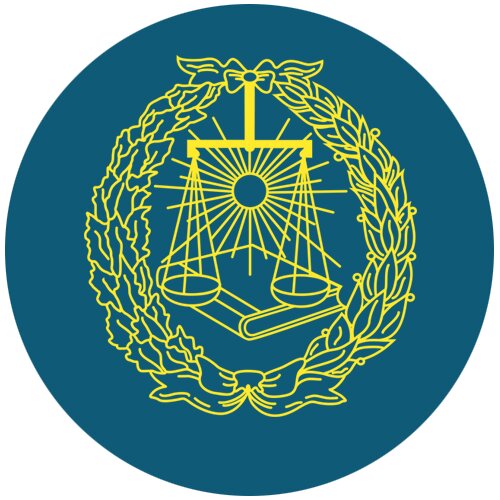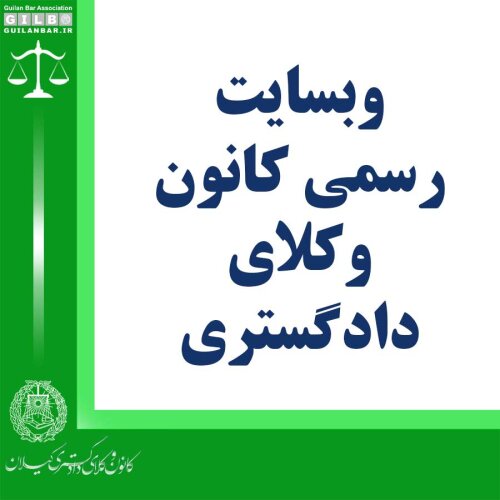Best Business Lawyers in Iran
Share your needs with us, get contacted by law firms.
Free. Takes 2 min.
Or refine your search by selecting a city:
List of the best lawyers in Iran
About Business Law in Iran
Business in Iran is regulated by various laws and regulations that govern different aspects of commercial activities. It is important for businesses operating in Iran to comply with these laws to ensure smooth operations and avoid any legal issues.
Why You May Need a Lawyer
There are several situations where you may need a lawyer in Iran for your business, such as contracts, disputes with partners or customers, employment matters, regulatory compliance, and intellectual property protection. A lawyer can provide guidance and assistance to navigate the complex legal landscape in Iran.
Local Laws Overview
Some key aspects of local laws relevant to business in Iran include company formation, foreign investment regulations, labor laws, taxation, intellectual property protection, and contract law. Understanding these laws is essential for conducting business in Iran.
Frequently Asked Questions
1. Can foreign investors establish businesses in Iran?
Yes, foreign investors can establish businesses in Iran through various legal structures such as joint ventures, wholly foreign-owned subsidiaries, and representative offices.
2. What are the tax implications of doing business in Iran?
Businesses in Iran are subject to corporate income tax, value-added tax, and other taxes. It is important to understand the tax laws and regulations to comply with them effectively.
3. How can I protect my intellectual property in Iran?
You can protect your intellectual property in Iran by registering trademarks, patents, and copyrights with the relevant authorities. It is important to enforce your IP rights to prevent infringement.
4. Are there any restrictions on hiring employees in Iran?
Employers in Iran must comply with labor laws and regulations regarding hiring, termination, working conditions, and employee benefits. It is essential to understand these regulations to avoid legal issues.
5. Can I sign contracts with Iranian parties in English?
While Persian is the official language in Iran, contracts can be signed in English. It is advisable to include a Persian translation to ensure legal enforceability in Iranian courts.
6. What are the legal requirements for foreign companies operating in Iran?
Foreign companies operating in Iran must comply with the Foreign Investment Promotion and Protection Act (FIPPA) and other regulations governing foreign investment, licensing, and business activities.
7. How can I resolve disputes with business partners in Iran?
Disputes with business partners in Iran can be resolved through negotiation, mediation, arbitration, or litigation. It is essential to have a clear dispute resolution clause in your contracts to address potential conflicts.
8. What are the restrictions on advertising and marketing in Iran?
Advertising and marketing in Iran are regulated by the Ministry of Culture and Islamic Guidance. Certain restrictions apply to the content and distribution of advertisements to comply with cultural and religious norms.
9. How can I expand my business operations in Iran?
You can expand your business operations in Iran by forming strategic partnerships, acquiring existing businesses, or entering new market segments. It is important to conduct thorough market research and due diligence before expanding your business in Iran.
10. What legal risks should I be aware of when doing business in Iran?
Some legal risks to consider when doing business in Iran include political instability, economic sanctions, compliance with international laws, corruption, and enforcement of contracts. It is important to seek legal advice to mitigate these risks effectively.
Additional Resources
For more information on Business law in Iran, you can visit the official websites of the Ministry of Industry, Mines, and Trade, the Iran Chamber of Commerce, Industries, Mines, and Agriculture, and the Iranian Central Bar Association.
Next Steps
If you need legal assistance in Business in Iran, it is advisable to consult with a qualified Iranian lawyer who is familiar with the local laws and regulations. They can provide you with personalized advice and guidance based on your specific business needs and objectives.
Lawzana helps you find the best lawyers and law firms in Iran through a curated and pre-screened list of qualified legal professionals. Our platform offers rankings and detailed profiles of attorneys and law firms, allowing you to compare based on practice areas, including Business, experience, and client feedback.
Each profile includes a description of the firm's areas of practice, client reviews, team members and partners, year of establishment, spoken languages, office locations, contact information, social media presence, and any published articles or resources. Most firms on our platform speak English and are experienced in both local and international legal matters.
Get a quote from top-rated law firms in Iran — quickly, securely, and without unnecessary hassle.
Disclaimer:
The information provided on this page is for general informational purposes only and does not constitute legal advice. While we strive to ensure the accuracy and relevance of the content, legal information may change over time, and interpretations of the law can vary. You should always consult with a qualified legal professional for advice specific to your situation.
We disclaim all liability for actions taken or not taken based on the content of this page. If you believe any information is incorrect or outdated, please contact us, and we will review and update it where appropriate.
Browse business law firms by service in Iran
Iran Attorneys in related practice areas.
Browse business law firms by city in Iran
Refine your search by selecting a city.
















